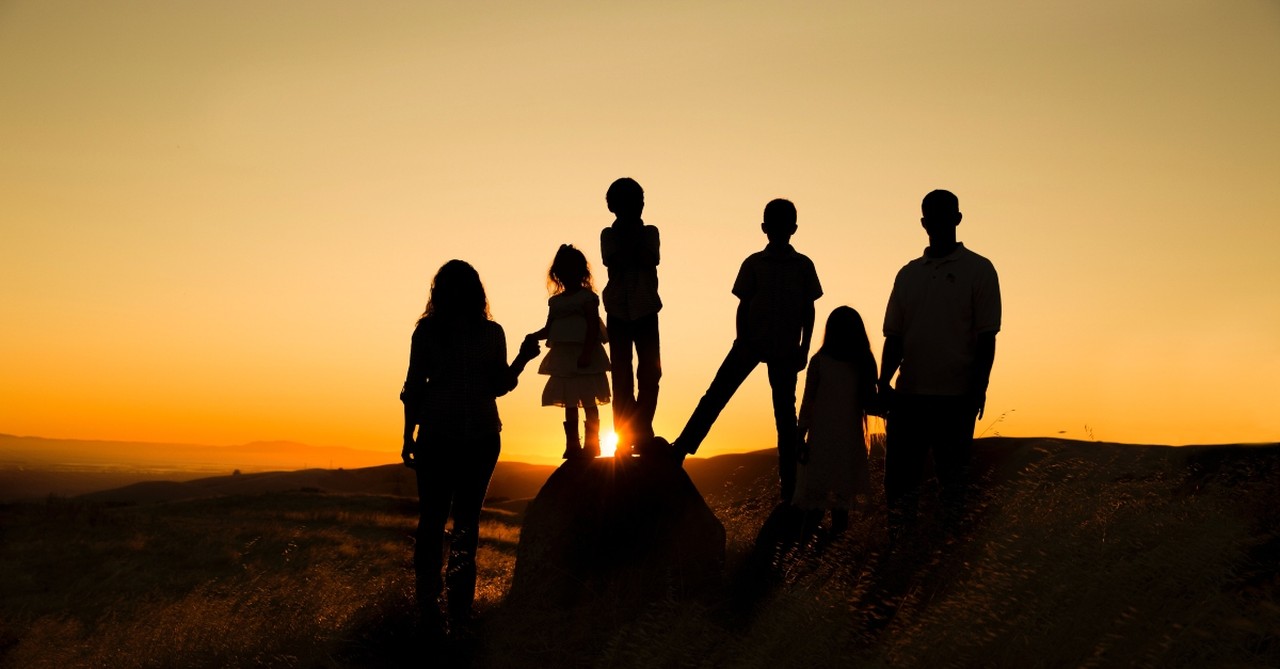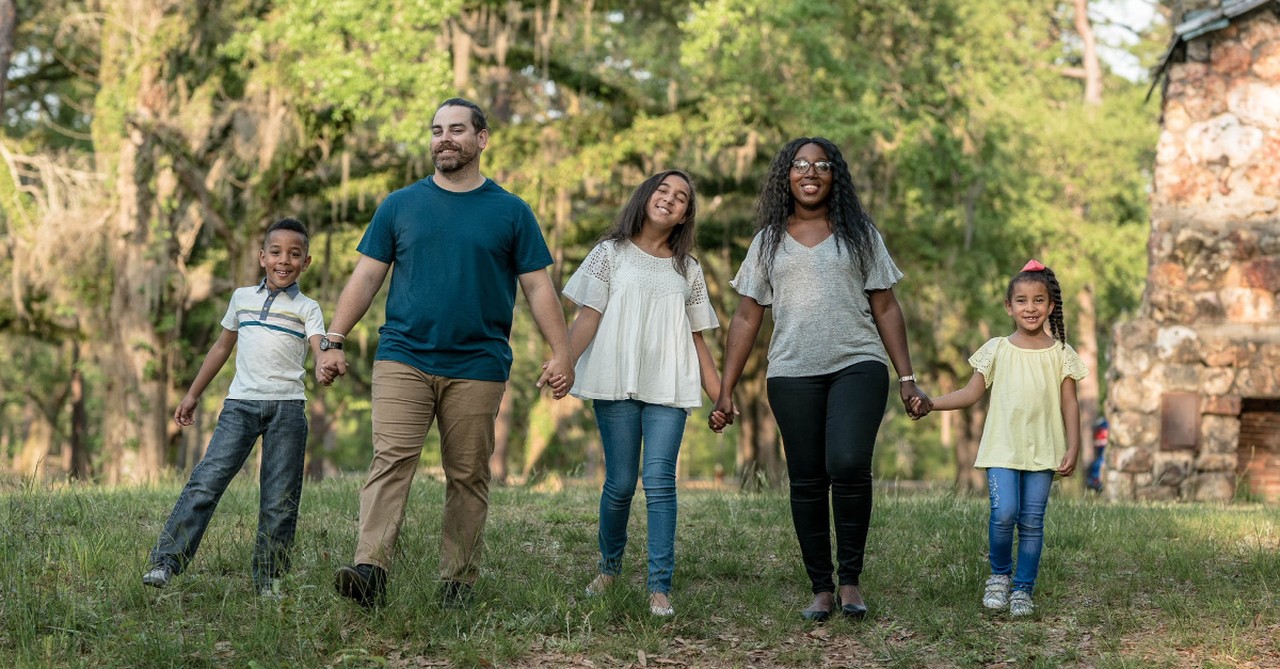
Genesis - the first book of the Bible - is a history book. It describes the creation of the earth and the history of God’s people up until Moses. It shows us how the concept of family got started. There is a phrase that repeatedly occurs in the book of Genesis.
The phrase that occurs, again and again, goes like this: “This is the account of the family of ________.”
Adam, Noah, Abraham and Sarah, Ishmael, Isaac, Jacob, Joseph - and many more. Each of these biblical characters has their family history described in Scripture. And those histories are all over the place. The good, the bad, and the ugly. Which leads me to a big truth. There is no such thing as an ideal family. There are only families that are real.
Today’s family experiences are so diverse.
- Blended families.
- Traditional families.
- Second marriages.
- Third marriages.
- Between marriages.
- Raising your kids.
- Raising somebody else’s kids.
- Raising kids you’ve adopted.
- Raising foster kids in your home.
Our family experiences are way diverse. The whole conversation around family right now is so challenging. And yet, at the same time, it’s always so relevant. Amid this diversity, what do we have in common? What do all families have in common?
Photo credit: ©Unsplash/Jude Beck
First family commonality: You did not get to choose your family of origin.

First family commonality: You did not get to choose your family of origin.
SLIDE 1 OF 3
You do not get the option of choosing the family you are born into. They may have chosen you. You did not choose them. Our kids are both adopted. We used the word “chosen” when teaching them about being adopted.
Our son Jered had his first experience with school in a four-year-old preschool program. He went to school every morning. He loved his teacher. His teacher loved him. Or so we thought until the teacher called one day and requested a parent-teacher conference. So we went the next day after school. The teacher’s assistant played with Jered while my husband and I met with the teacher.
The teacher made some small talk and then said, “I understand Jered is adopted.” I said, “Yes, ma’am, he is, and he is mighty proud of it.” The teacher responded, “That is the problem - he has the other kids feeling bad.” When she saw the look on our faces, she explained.
“Every day at recess time, we have a snack - and I have one kid who helps pass out the snacks each week. Last week was his turn. So as he went around the circle and gave each kid a cookie, he looked them in the eye and said, ‘My parents chose me - your parents got stuck with you.’”
Ever feel that way? Like you got stuck in a family that does not quite fit you? We all would have made some potentially different choices if we had the chance to choose our family of origin.
Photo credit: ©Blake Barlow/Unsplash
Second family commonality: All families have areas of dysfunction.

Second family commonality: All families have areas of dysfunction.
SLIDE 2 OF 3
All families have areas of dysfunction. Let me demonstrate. Let’s do a quick survey of families in the Bible.
- The first family - Adam and Eve - had two boys - one murders the other.
- The first civil war in Israel’s history - starts with father vs. son - David vs. Absalom.
- Even Jesus’ family - which by the way, was a blended family - had their struggles. Including losing their 12-year-old son for three days.
The reason is that family is difficult. There are challenges. The words “father” and “mother” are not emotionally neutral. “Brother and sister” - whenever you hear those words, and you think about your family, there’s emotion there. There’s information, there’s background, there’s chaos, there’s joy, there’s happiness. There are great memories, and there are not-so-great memories. Relational titles can be so charged with emotion. Father - mother - brother - sister - son - daughter - family. Those words can carry hurt with them. Or disappointment. Or shame. These are just not emotionally neutral terms. And so it’s a challenging subject.
There is no such thing as a perfect family.
The word family is mentioned 399 times in the Bible in the New Living Translation. If you read them all, here are the things that will stand out. A majority of those family mentions in the Bible highlight family dysfunction. There is an old southern song that says, “All God’s children got baggage.” I believe all of our families have baggage. All of our families have dysfunction. And there is a bigger problem. The dysfunction of a single family member tends to affect the entire family. Have you noticed this? Dysfunction is contagious. It does not just affect one family member. It infects the entire family.
The Bible warns us about this multiple times:
“The sins of the parents come upon their children; the entire family is affected - even children in the third and fourth generations.” Deuteronomy 5:9
Let me demonstrate this in my husband’s family - with Dan’s permission, of course. Dan’s grandad was an angry man. He had the talent to play major league baseball. But an early marriage and early fatherhood, combined with an injury, ended his dreams. He ended up working in the oil field in Southwest Oklahoma. He was a bitter, angry man. He passed that anger on to Dan’s dad. Because he watched his dad be in charge through anger, Dan will tell you that his dad passed that on to him and his siblings. All four of them struggle with anger.
Dysfunction affects the entire family. And can be passed down for generations.
Third commonality: All families live in the tension between the real and the ideal.

Third commonality: All families live in the tension between the real and the ideal.
SLIDE 3 OF 3
All families live in the tension between the real and the ideal.
The real: families often fall apart when left on their own. The ideal: families can do better if we follow God’s guidelines.
The real: every family has its own baggage to deal with. The ideal: we can deal with our baggage in healthy ways.
The real in Jesus’ day: men had rights, and women and children had none.
The ideal Jesus sets: men, women, and children matter to God and have rights.
All families live in the tension between the real and the ideal.
- Between their checkered past and their possible future.
- Between their worst moments and their best moments.
- Between their strengths and their weaknesses.
Jesus’ own family demonstrates the tension between the real and the ideal. He grows up with half brothers and sisters and a stepdad. He wants to honor his family but finds himself conflicted between what God is leading him to do and what his family wants him to do. Jesus dealt with tension within his family - because tension is normal in all families. Jesus taught family ideals, but he refused to condemn those who fell short. We have all blown it with our families. In fact, for all of us, our families see us at our worst.
Jesus says, “I forgive you.” Jesus says, “Get up - let’s go - we can do better.”
When we partner with Jesus in how we do families, when we live by the family principles he offers, we move toward being the family he wants us to be.
Some of you say, “it’s too late for my family.” We have been a train wreck for years. Too late to change. I love this verse out of the Old Testament book of Amos. During a desperate time, the prophet declares:
Now this is what the Lord says to the family of Israel: “Come back to me and live!" Amos 5:4
Jesus is the hope for all of our families - the good, the bad, and the ugly.
Mary Southerland is also the Co-founder of Girlfriends in God, a conference and devotion ministry for women. Mary’s books include, Hope in the Midst of Depression, Sandpaper People, Escaping the Stress Trap, Experiencing God’s Power in Your Ministry, 10-Day Trust Adventure, You Make Me So Angry, How to Study the Bible, Fit for Life, Joy for the Journey, and Life Is So Daily. Mary relishes her ministry as a wife, a mother to their two children, Jered and Danna, and Mimi to her six grandchildren – Jaydan, Lelia, Justus, Hudson, Mo, and Nori.
Originally published August 10, 2023.







